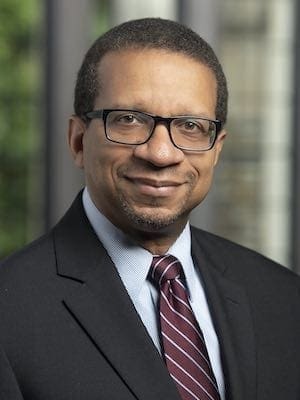Local contexts and leadership capacities yield missional content.
This principle has shaped the work and witness of Lott Carey Baptist Foreign Mission Convention (Lott Carey) through the years. We continually learn the value of this approach through serving, primarily, as a “supporting” rather than “sending” mission community.
The last missionary that Lott Carey deployed outside of the U.S. came home in the mid-1970s. Before then, however, the majority of our missionaries were indigenous for several decades.
We supported Russian pastors in the 1920s. We sponsored an Indian social worker in the 1930s. We funded a Chinese physician in the 1940s. We partnered with Liberian educators, a Nigerian pastor and a Guyanese pastor/physician and his spouse who was a nurse in the 1960s.
Today, all of Lott Carey’s missionary personnel are indigenous.
When churches invest in local leaders serving in local contexts, the varieties of missional content take various shapes.
Similar to the various colors you see when light shines into a prism, we witness diverse expressions of the gospel as Christ shines through people who serve in the countries where they were born. The results are beautiful rainbows of witness.
Most of the first 40 years of Lott Carey’s Christian witness in Liberia was led by a husband-and-wife team who were teachers and educational administrators.
Because Liberia was still emerging as an independent state that had achieved its independence in the 1840s, our team that arrived in the early 1900s found themselves in a country that was still trying to establish itself.
The nation needed building. The emerging young country needed to invest in new generations with academic development, vocational training and Christian formation.
Over a century later, Lott Carey Mission Schools in Liberia are still helping to form young people with scholarship, industry and character.
Capacity and context yield content.
The leaders of the Lott Carey Baptist Mission in India were a husband pastor and wife physician for a quarter century of its early development.
India was newly free from British colonization. Many poor people were leaving rural areas for the city of New Delhi. They needed the Christian witness in word and deed.
Evangelism included preaching, teaching and healing. These leaders could not conceive of a gospel that spoke to the soul while ignoring the situation in which people lived.
They worked faithfully and generously among the poor. Working among the poor, however, meant serving amid illness.
Poverty precipitates sickness, and destitution hastens death. The indigenous Indian Lott Carey missionaries understood their calling to bring hope and health to the poor and diseased.
Capacity and context yield content.
Many churches and church networks cannot conceive of indigenous partners being their missionaries. They understand missionaries as people who are sent from one social/cultural/theological community to serve among “others.”
Because one’s money ordinarily follows one’s missionary, resources are rarely or minimally invested in the development or sustainability of the indigenous partners and communities. The hosts become fields for the guests (or introducers) to plow.
This approach makes sending partners vulnerable to introducing alien or abstract strategies around the world.
I am not asserting that sending missionaries is wrong. There are particular kinds of service that require specialized training and ability that may not be resident in certain communities around the world.
Sending missionaries to serve and to strengthen local capacities seems wise in these contexts.
The Lott Carey network, however, asserts that supporting indigenous missionaries is a good and faithful strategy for extending the Christian witness throughout the world and helping to sustain vibrant ministry that more of us should embrace.
I learned a proverb from Nigerian partners that translated into English roughly as “A hungry person cannot hear the gospel.”
If a sending community does not take seriously the fragility and vulnerability with which people may live in a particular context, they may assume that planting churches for preaching and worship is relevant.
However, you need more than sermons, songs and Scriptures when you live with food insecurity. You need to experience the gospel in word and deed.
An evangelist preaching about how the word of God supplies one’s every need was asked by an interested listener, “Preacher, can I eat that word?”
Context and capacity yield content. This is a lesson that we keep on learning.
David Emmanuel Goatley is executive secretary-treasurer of the Lott Carey Baptist Foreign Mission Convention. You can follow Lott Carey on Twitter @lottcarey.
Editor’s note: This article is part of a series on missions and local churches / denominational organizations.
Previous articles in the series are:
Sharing the Gospel, Saving Lives in West African Nation

